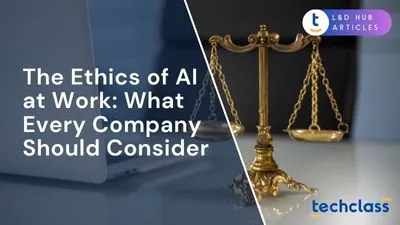When you think about powerhouse teams in business, sales and marketing or product and engineering probably come to mind. But there’s another partnership, often overlooked, that is absolutely critical to a company’s survival: the collaboration between HR and compliance.
Let’s explore how these two functions work together to build a workplace grounded in ethics—and why this partnership is more vital than ever.
The risks of mishandling compliance are enormous. It’s not just about a small fine here or there; the financial and reputational consequences can be catastrophic.
And those numbers only scratch the surface. The hidden costs—business disruption, loss of customer trust, declining productivity, and damaged employee morale—can prove even more devastating.
Compliance isn’t static. Regulations shift constantly, becoming more complex year after year. Consider the recent changes:
It’s too much for any single department to manage alone. This new reality demands cross-functional teamwork.
While compliance experts define the rules and identify risks, HR brings unique strengths to the table:
By turning dense legal jargon into relatable, memorable lessons, HR makes compliance training stick.
Even HR cannot win this game alone. Success depends on a team sport approach:
The numbers highlight why this collaboration matters: 95% of all data breaches stem from human error. People are the first line of defense, and HR is uniquely positioned to help them build better habits.
At its core, compliance isn’t just about avoiding fines—it’s about cultivating a culture of integrity. A crucial element of that is fostering a speak-up culture, where employees feel safe reporting concerns without fear of retaliation.
While compliance may provide hotlines and reporting mechanisms, HR creates the trust that makes employees willing to use them. As Peter Drucker famously said, “Culture eats strategy for breakfast.” In compliance, culture is not just part of the plan—it is the plan.
Strong compliance culture also delivers measurable HR benefits:
Employees want to work for organizations they can be proud of. Ethics, in this sense, become a competitive advantage.
The partnership between HR and compliance isn’t a “nice-to-have.” It is a strategic must-have. Together, they reduce risk, strengthen culture, protect the business, and make the company more attractive to top talent.
The real question for leaders is this:
Is the HR–compliance partnership in your organization strong enough to safeguard its future?


